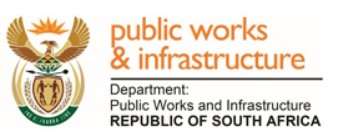Public Works and Infrastructure Minister, Sihle Zikalala, has vowed to intensify operation pay-on-time and urgently put an end to failure to pay service providers in the construction industry within 30 days. Minister Zikalala was speaking at the National Stakeholder Forum convened by the Construction Industry Development Board (CIDB) which is an entity of the Department of Public Works and Infrastructure (DPWI).
The National Stakeholder Forum is comprised of contractors in the built industry, Government Departments and municipalities involved in infrastructure development, Built Industry organisations and Councils, Institutions of higher learning and other key players in the built environment industry.
The National Stakeholder Forum is convened for the Minister to gain insight from the players in the industry and go through emerging trends and developments, respond to threats and new opportunities emerging within the sector.
“We will commence engagements with all contractors not paid on time. It is time that we fight bribery and corruption where payments are delayed in order to force them to pay. We are alarmed at the allegations that outstanding invoices amount to billions. We will intensify the Re a Patala campaign to all provinces”, said Minister Zikalala.
CIDB-SEFA partnership
Responding to the challenge faced by SMMEs and emerging contractors around access to finance, Minister Zikalala has noted the historic partnership between CIDB and SEFA (Small Enterprise Finance Agency) for construction industry financing mechanisms to focus on financing small and medium contractors and cooperatives involved in the construction sector. The partnership under consideration will see CIDB contribute up to R150 million and SEFA matching that with R150 million over the medium term. The struggle faced by SMME’s in the construction sector requires innovation. Many collapse because they do not have access to finance and loans for building materials and other resources. We need to develop a finance institution led by the industry to support contractors.
Increase in the cancellation of tenders in the construction industry
Stakeholders have implored Minister Zikalala to investigate and report on the escalating rate of the cancellation of tenders, especially big tenders by parastatals and institutions which is costing the construction industry billions of Rands. Big state entities cancel tenders after contractors have spent money and time putting together infrastructure. The Construction Industry Development Board will look at the practice whereby people charge low when tendering in order to rely on variation orders. Variation orders may need an independent process outside of the department.
Mentoring of built environment professionals
Minister Zikalala has raised concerns over the slow pace in which the built environment industry is advancing the career path of professionals. The DPWI is worried that there are suspicions of gate-keeping. At least over 30 000 professionals have been kept at the candidacy level for a longer period of time. There seems to be no appetite to graduate them and empower them with skills relevant to their qualifications. The Department, through one of its entities – the Council for the Built Environment (CBE), will establish a national logbook to track progress in this area. The entity has also been tasked with standardising the process of how one obtains professional recognition within the industry. CBE will strengthen its relationship with tertiary institutions and councils to accelerate the preparation, mentoring and registration of students at lower academic levels.
Social facilitation to mitigate construction site disruptions
In order to mitigate the disruption of construction sites, the Department of Public Works and Infrastructure will intensify social facilitation and not make it a by-the-way activity, but will make it an integral part in all project implementations across all spheres of government. This will ensure community buy-in, involvement and beneficiation which would isolate criminal elements. All projects that are large should have empowerment elements which support up and coming professionals and subcontracting and localisation is compulsory. The Department will develop a national facilitation framework for the built industry. The law enforcement will be meted out to those engaged in criminal activity such as extortion and not wanting to genuinely participate in the construction sector. Social facilitation, localisation and subcontracting will ensure that criminal elements do not use the community to shield their criminal conduct.
Distributed by APO Group on behalf of Republic of South Africa: Department of Public Works and Infrastructure.
